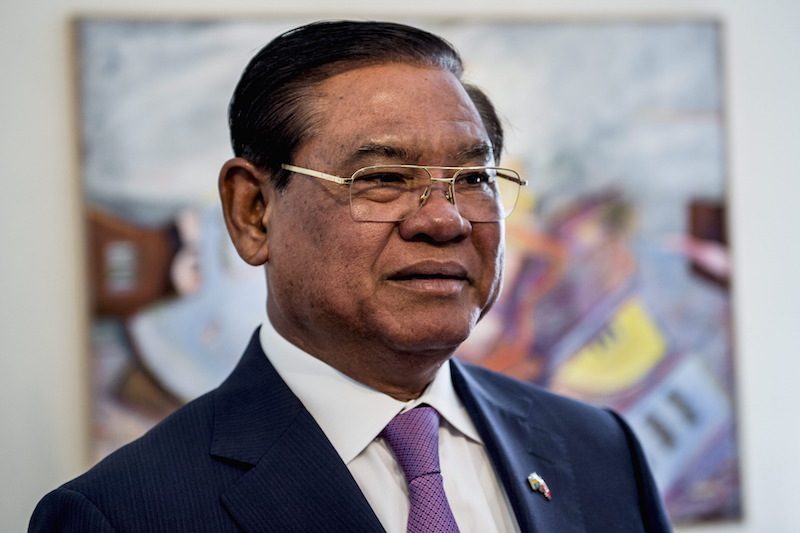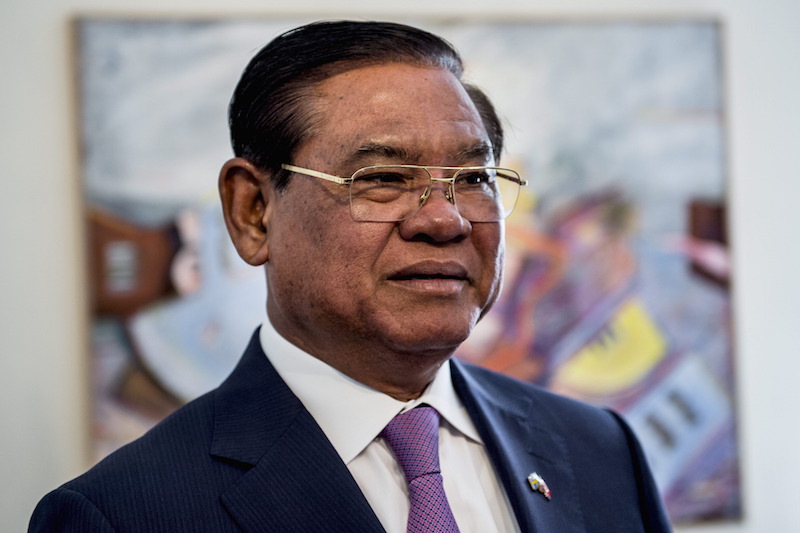Interior Minister Sar Kheng lashed out at the opposition on Wednesday for delivering a letter this week to foreign embassies about the crumbling state of politics in Cambodia, accusing the CNRP of being responsible for “destroying democracy.”
The CNRP’s letter, delivered by lawmakers to 13 embassies across the city on Monday, condemned what is widely seen as a politically motivated legal assault on the opposition and rights groups, highlighting cases against opposition leader Sam Rainsy and his deputy, Kem Sokha.

It also implored foreign countries to press the ruling party to restore the political practices laid out in the Paris Peace Agreements and Cambodia’s Constitution.
In his own open letter, Mr. Kheng said that the opposition was responsible for undercutting political discourse and discrediting the judicial system.
“While they accuse the government, in fact it is the parliamentarians from the opposition party that are destroying democracy and the political institutions of the country,” his letter said.
Claims of a connection between the government and the killings of politicians, activists and others including political analyst Kem Ley are “malicious,” void of evidence and interfere with “court duties and judicial policy,” it said.
“What is worse is that leaders of the opposition party think that they are above the law,” Mr. Kheng wrote, citing the refusal of Mr. Rainsy and Mr. Sokha to appear in court when summoned. Their claims to parliamentary immunity from legal prosecution have only served as an excuse to violate the law, he added.
“We beg the international community and leaders of Asean countries to please make their views based on the facts of the situation in Cambodia,” the letter concluded.
In response to the CNRP’s letter, Japanese Embassy counselor Naoaki Kamoshida said on Wednesday that Japan was indeed concerned about “the current escalation of political tensions in Cambodia.”
“Japan would like to see mutual trust and dialogue between the ruling and opposition parties be swiftly restored, and a political environment be re-created that safeguards opposition parties and civil societies performing freely and normally,” he said in an email.
None of the 13 recipients of the CNRP’s letter provided comment on what actions embassies might take to address the political tension, however, and aside from Japan, only the U.S. and Australian embassies said they were monitoring the situation.
Opposition lawmaker Mu Sochua, who led the cross-city excursion hand-delivering the letters, said it was too soon to say what role foreign countries could play in calming the political climate, but added: “It’s the role of the international community to intervene as a mediator.”
She said that Mr. Kheng’s letter showed the deep divide between the two parties’ understanding of Cambodian society and the need for the current tension “to be solved through political dialogue.”
Council of Ministers spokesman Phay Siphan said the ruling party was merely waiting for the opposition to engage in civil discussions by ending its boycott of the National Assembly.
“The CPP is open every time, every time they want it,” Mr. Siphan said.
“They should sit in the National Assembly to consult peacefully,” he added. “But they boycott to be on the street to manipulate the international community.”




